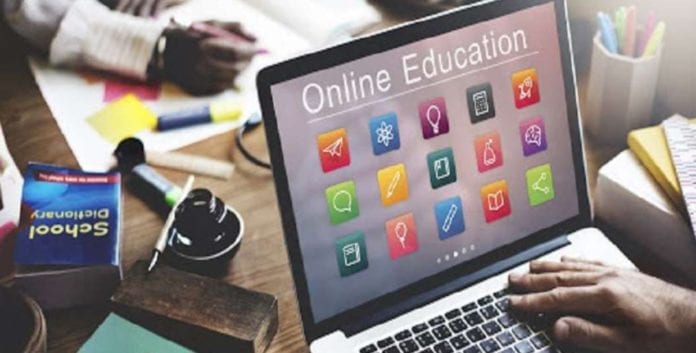On Friday, HRD School Education Secretary Anita Karwal said that when schools reopen there will be new normal. The classroom learning is going to change. The COVID-19 pandemic has forced digital education to come in force as it was postponed so far.
Both Students and Teachers will have to adjust ones the lockdown ended. Ms Karwal mentioned that this will affect more than 24 children in the country.

Ms. Karwal further explained that they are aware that there has to be the supervision of social distancing and a lot of safeguards need to be taken whenever schools reopen. A virtual conference has been organized by Ashok University on Future of Schools and to overcome the COVID-19 challenge.
She said that the way learning occurs in classrooms is going to alter and there will be a lot of adjustments which teachers and students need to adapt. These adjustments are something that we cannot ensure that it will happen in a few days, it may take more time for a few children and less time for others. This is the context in which they are operating.
Chairman of the Central Board of Secondary Education (CBSE), Ms Karwal said that the first thing that we needed to assure was the mental well-being of students followed by the continuity of education is it online or offline.
She mentioned that when we started with the jab on e-learning, the priority was more on access to e-learning. Technology without equity will not lead to beneficial learning in all our children.
She said that another region of importance is the quality of digital education which we had discontinued before the pandemic happened. They realized that whatever the digital education universe has to be of the greatest quality, something which is engaging, interacting, and able to communicate with the respective.
However, for the reopening of schools, Ms. Karwal said that they are now striving to realign the whole learning process, the education, the instructional process, the way students will be called to schools. What changes have to made at the entry and exit points at the school, what are the changed roles of teachers they are working on all this.
Firstly, they organized states to provided textbooks to students at their homes. Some states cited to Ms. Karwal that printing is not allowed, transportation is not available, so they intervened on their behalf and requested MHA for permissions. Now almost all states have been able to send it (books) to children or are in the of doing so.
She said they appeared with an alternative calendar mapping it with learning outcomes. They have also documented in the calendar the steps if the children don’t have access to e-learning resources.
Since March 16, all the institute and schools have been closed across the country as the Centre announced a countrywide lockdown because it was the only precaution due to the outbreak of COVID-19. After that on March 24, 21-days lockdown was announced by the government.
To raise awareness among students and teachers on Internet safety and cyberbullying, union HRD minister Ramesh Pokhriyal Nishank digitally launched the booklet titled Safe online learning in the times of COVID-19.
Developed by the National Council of Educational Research and Training (NCERT) and UNESCO New Delhi, said the booklet will teach young learners about the basic do’s and don’ts for safe internet.
Nishank said at the launch of the booklet that since there has been a huge increase in online and distance learning in times of COVID-19, many children and teachers are learning by engaging with each other using online platforms. MHRD and NCERT are committed to ensuring a safe and secure online environment for them.
He also urged the victims of cyberbullying to report and seek support against the crime.
Hrushikesh Senapaty, Director, NCERT Our their investments in the education system will be ineffective unless they address issues of online safety and prevention of cyberbullying. Unsafe learning environments can undermine the quality of education for our learners.
Eric Falt, director, and representative, UNESCO, New Delhi said the booklet highlights the negative consequences of cyberbullying and ways to eliminate and prevent the same.
Data and statistics have highlighted that post lockdown, the internet has amplified the risk of cyberbullying, including online discrimination for children and young people.
Also read:
ONLINE COURSES: NMIMS EXECUTIVE MBA AND 67 COURSES ARE OFFERED BY HARVARD UNIVERSITY
FOR INSTANT UPDATES CONNECT ON INSTAGRAM | TELEGRAM | FACEBOOK














